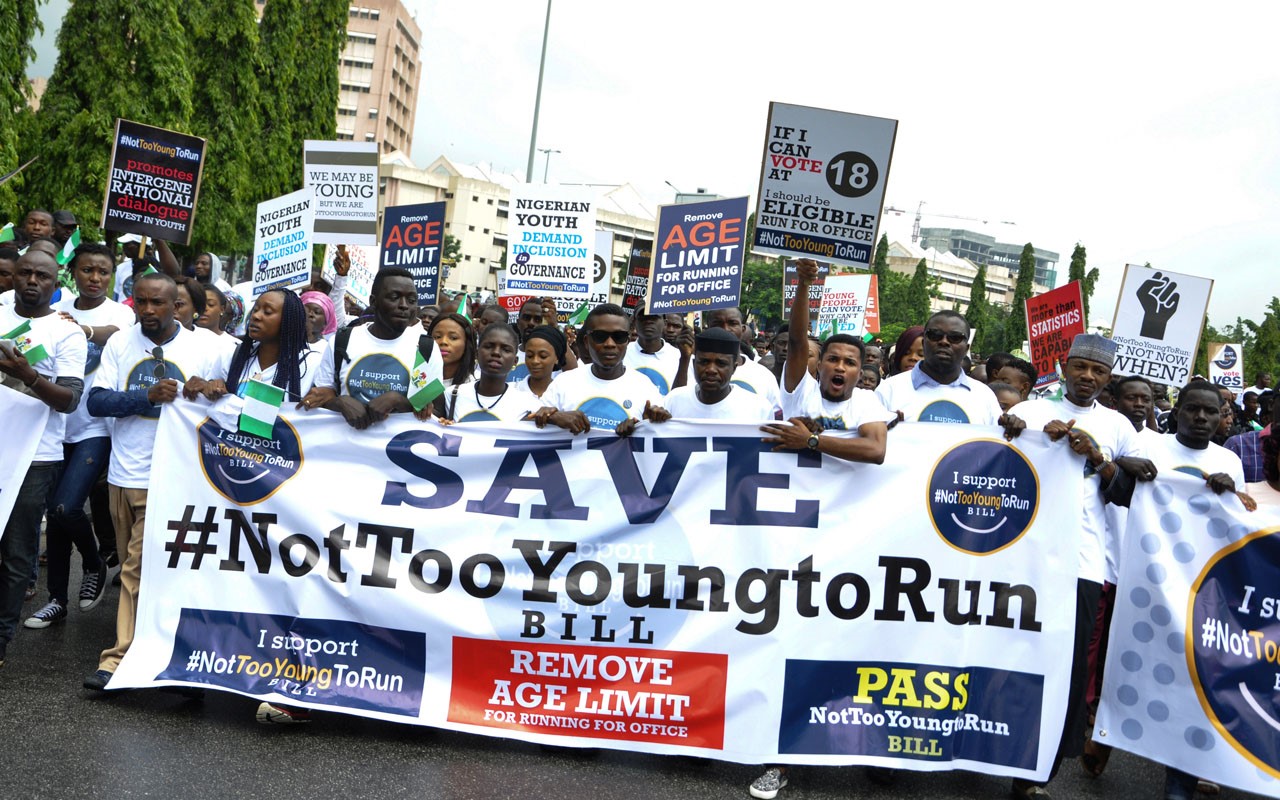The National Assembly has passed a bill reducing the age requirement to run for political offices, in response to the “not too young to run” campaign of some youth activists and NGOs. On the face of it, this demonstrates concern for the wishes of young Nigerians who make 60% of the total population.
But, this is just another case of the bosses’ taking a win out of every situation when they can, to the detriment of poor working people. This proposed reform of the electoral law was not an act of goodwill; the National Assembly was pressured by a wave of youth agitation.
Most of these agitators, who are now calling for President Buhari’s assent to the bill are middle-class young professionals and NGO development sector people.
However, most Nigerian youths cannot stand a chance in Nigeria election, this is not because they lack the intellectually capability. The costs of running for electoral offices means that the main beneficiaries will be rich young people or those sponsored by the older rich bosses, including the children of those ruling and stealing the nation blind already.
With official youth unemployment rate at 33.10% and half of employed youth being officially underemployed, this reform is near meaningless for most youth. Thus, young people from working-class backgrounds ARE TOO POOR TO CONTEST in the bosses’ electoral politics.
Further, the “not too young to run” ideological disposition promotes generational identity as solution to what is fundamentally a problem of class exploitation. The main dividing line between the haves and have-nots is that between the rich few and the poor working masses.
Thus much more than generational identity our focus as working-class youth must be the class struggle between we, the poor working people and them, the wealthy bosses.
Older wealthy people will merely utilize the age reduction to position the lazy youth that are their children to continue the bosses’ rule, except we change the system. Our struggle for social change includes immediate demands such as:
- Increase in budgetary allocation to the education sector and the provision of free and qualitative education at all levels. Children and wards of poor working people who cannot attend school because of poverty will thus have the best of education, as a right;
- Increase the national minimum wage from N18,000 to N60,500 and ensure all employers abide by this or face stiff penalties. Renationalisation of privatised enterprises must also be pursued, and a rapid youth employments scheme established, with the trade unions and grassroots youth organisations playing central roles in coordinating this;
- The government must reduce the number of political offices and drastically reduce the salaries and remunerations of political office holders to be no more than those for the average worker.
by Lai BROWN









